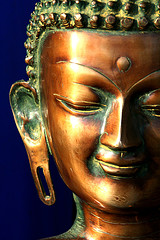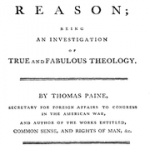What is Enlightenment? Sapere Aude!
What better way to kick start my blog than to dive into one of the most dynamic and controversial questions of our time. What is enlightenment? What does it look like? What does it feel like? How do we know when we have “obtained” it?
Clearly I am not the first to ponder the spiritual relevance of our lives; in fact nothing could be further from the truth. In September of 1783, Immanuel Kant took his turned at answering the one of the most profound questions of our time. “What is Enlightenment?” His explanation was that “Enlightenment is man’s emergence from his self-imposed immaturity. Immaturity is the inability to use one’s understanding without guidance from another…Sapere Aude! Have courage to use your own understanding!
Loosely translated, Sapere Aude means: DARE TO KNOW. Dare to know the truth, to obtain the knowledge and successfully apply it to your life. Is this not the life of the modern day warrior, challenging ourselves to become more, to challenge ourselves to act courageously even in the face of fear or darkness? We are a society of seekers, and we find the answers to our deepest desires by searching, by inquiring not into the lives of others but into our own. In Buddhism this is known as Nirvana, Bodhi or Satori, and in Hinduism it is referred to as Moksha. But regardless of the nomenclature, the significance doesn’t change. We can attempt to define Enlightenment as a concept in spirituality, philosophy and psychology related to achieving a certain clarity of perception, reason and knowledge. However, it is not simply the acquisition of information but the successful application of such knowledge.
In the 17th and 18th century, Enlightenment was a movement that advocated the use of reason and instead of tradition, established doctrine focused on individualism. It was also referred to as the Age of Enlightenment and the Age of Reason, but even this does not do it justice for it is so much more than a rejection of tradition, for it is a clearly state of being. But by its very definition, enlightenment is truly indescribable, for it is not restricted by our words or language. We may perceive it to be unattainable, but that is only a reflection of our limitations of the moment. Further, once we find it, there is no guarantee that we will be able to maintain it.
Enlightenment is our ability to learn and to successfully apply the knowledge we gain in a method and manner that enhances our life and our ability to give back to our world. It is not restricted to age or gender, race or nationality, sexual preference or hair color…it is available to each and every one of us as a function of our own desire for knowledge and evolution. In latin, the word enlightenment can be loosely translated into “one who knows the truth.”
Kant tell us that “For enlightenment of this kind, all that is needed is freedom.” We can so quickly assume that he is referring to some kind of physical freedom, when in reality it is the freedom of our soul that is not governed by society. We can celebrate our physical freedom, but when we are stuck and feel trapped in life, it is our inability to find freedom within our thoughts, our emotions, and our spirituality.
Enlightenment cannot come from freedom alone, for it cannot be obtained or achieved, acquired or even sought after. Merely by seeking it you move further from it. It cannot be gifted or shared, earned or found, for it is simply a state of being. We will obtain what we desire by our commitment to grow, to evolve, and to learn. We can take from this a commitment to life, to living. Dare to know the truth, your truth, and enlightenment can be yours.
Leave a Website Comment












